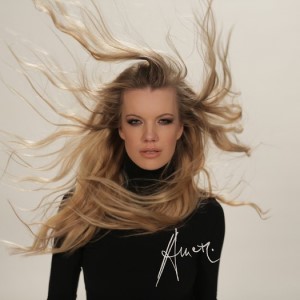Related Research Articles

The Balkans, corresponding partially with the Balkan Peninsula, is a geographical area in southeastern Europe with various geographical and historical definitions. The region takes its name from the Balkan Mountains that stretch throughout the whole of Bulgaria. The Balkan Peninsula is bordered by the Adriatic Sea in the northwest, the Ionian Sea in the southwest, the Aegean Sea in the south, the Turkish straits in the east, and the Black Sea in the northeast. The northern border of the peninsula is variously defined. The highest point of the Balkans is Musala, 2,925 metres (9,596 ft), in the Rila mountain range, Bulgaria.
Southeast Europe or Southeastern Europe (SEE) is a geographical subregion of Europe, consisting primarily of the Balkans, as well as adjacent regions and archipelagos. Sovereign states and territories that are included in the region are Albania, Bosnia and Herzegovina, Bulgaria, Croatia, Cyprus, Greece, Kosovo, Montenegro, North Macedonia, Romania, Serbia, and the European part of Turkey. Sometimes, Moldova and Slovenia are also included. The largest cities of the region are Istanbul, Athens, Bucharest, Sofia, and Belgrade.

Željko Joksimović is a Serbian vocalist, composer, songwriter, multi-instrumentalist and producer. He plays 12 different musical instruments including accordion, piano, guitar and drums. Joksimović is multi-lingual, being fluent in Greek, English, Russian, Polish and French as well as his native Serbian.

Željko Samardžić is a Bosnian folk singer born in Mostar, Bosnia and Herzegovina popular throughout the former Yugoslav republics. He achieved fame when he moved to Belgrade as a result of the Bosnian War.

"Lane moje" is the name of the song performed by Serbian musician Željko Joksimović at the Eurovision Song Contest 2004 for Serbia and Montenegro, in which it finished second. Inspired by traditional Serbian music, in the style of a ballad, it won in the semi-finals but ultimately lost closely to Ukrainian "Wild Dances", finishing second scoring 263 points, becoming the first non-winning song in the contest, along with Greece's entry "Shake It", to score over 200 points. The song set a trend of world music strategy in the competition by the former Yugoslav republics.
Bosnia and Herzegovina participated in the Eurovision Song Contest 2007 with the song "Rijeka bez imena" written by Aleksandra Milutinović and Goran Kovačić. The song was performed by Marija Šestić. On 16 January 2007, the Bosnian broadcaster Radio and Television of Bosnia and Herzegovina (BHRT) revealed that they had internally selected Marija Šestić to compete at the 2007 contest in Helsinki, Finland. Her song, "Rijeka bez imena", was presented to the public during a show entitled BH Eurosong 2007 on 4 March 2007.
Ohridski Trubaduri - Ohrid Fest is a music festival that takes place in Ohrid, North Macedonia every summer. It began in 1994 as a showcase for Macedonian summer folklore.

Darko Dimitrov is a Macedonian songwriter, record producer, arranger and record executive. Highly acclaimed for revitalising the Yugoslav mainstream pop music scene, which also influenced the surrounding Balkan countries, he has received international recognition for working with many popular foreign artists.
Operacija Trijumf was a regional music talent TV reality show filmed in Belgrade, Serbia, aired in the region of former Yugoslavia. It is a local version of Star Academy reality series that was developed and is licensed worldwide by Endemol. The show features contestants from the former Yugoslav republics of Croatia, Serbia, Bosnia & Herzegovina, Macedonia and Montenegro, the show is broadcast by 6 networks in these five countries. The winner of Operacija Trijumf is Adnan Babajić.

Igor Cukrov is a Croatian singer-songwriter, musician and television personality. He came to media attention as one of sixteen contestants of talents show Operacija trijumf, Balkan version of Endemol's Star Academy. Cukrov represented Croatia in the Eurovision Song Contest 2009, alongside Andrea Šušnjara, with the song "Lijepa Tena", written by Tonči Huljić. The song qualified to the final from the second semi-final as the jury's selected qualifier. It eventually finished in the 18th place with 45 points.
"Ljubavi" is the first single from the fifth studio album by Serbian singer-songwriter and music producer Željko Joksimović with the same name. The composer of the song is Željko Joksimović by himself, and the lyrics are written by Momčilo Bajagić – Bajaga. From its release, the song is well charting in most ex-Yugoslav charts.
Serbia participated in the Eurovision Song Contest 2012 with the song "Nije ljubav stvar" written by Željko Joksimović, Marina Tucaković and Miloš Roganović. The song was performed by Željko Joksimović, who had previously represented Serbia and Montentegro in the Eurovision Song Contest in 2004 where he placed second with the song "Lane moje". The Serbian national broadcaster, Radio Television of Serbia (RTS) internally selected the Serbian entry for the 2012 contest in Baku, Azerbaijan. Joksimović was announced as the Serbian representative on 18 November 2011, while the song, "Nije ljubav stvar", was presented on 10 March 2012 during a show titled Evropska pesma.

X Factor Adria, usually referred simply as X Faktor, was a Balkan production of international talent show franchise of The X Factor. The Adria edition of the show covered Serbia, Montenegro, Bosnia and Herzegovina, Macedonia and as of Season 2 Croatia as well, making the show regional. The 2nd Season was hosted by Antonija Blaće, Aleksandar Radojičić and Snezana Velkov. Like the original British version of the show, X Factor Adria was a music competition to find new singing talent, contested by aspiring singers drawn from public auditions.
X Factor Adria is a Serbian version of The X Factor franchise. The first series started broadcasting in late October 2013. Even though the production is Serbian, auditions were held in Montenegro, Bosnia and Herzegovina and North Macedonia - making the series pan regional.
The series judging panel features Emina Jahović, Kristina Kovač, Kiki Lesendrić and Željko Joksimović. The auditions were hosted by Bane Jevtić with Sneže Velkov as a co-host. Una Senić hosted the spin-off series and co-hosted during the judges houses. After the first two episodes were aired it was rumored that Bane would be replaced by another host, but the producers denied it. On the night of the first live show it was announced that Bane would be replaced by Slavko Kalezić - actor and a contestant that was eliminated in the Judges Houses phase of the competition. Day after the first live show aired it was announced that Slavko would be replaced as well. On January 14, 2014, Ana Grubin revealed she will be new host, while Una Senić and Sneže Velkov report from the backstage.

Tvoje Lice Zvuči Poznato is a Serbian talent show based on the Spanish franchise Your Face Sounds Familiar. The show began October 12, 2013 on Prva TV.

Daniel Kajmakoski-Gragevinac is a Macedonian singer and songwriter. He is best known for having won the first series of X Factor Adria. He represented Macedonia in the Eurovision Song Contest 2015 in Vienna, Austria with the song "Autumn Leaves" after winning the Skopje Festival 2014.
Bosnia and Herzegovina participated in the Eurovision Song Contest 2016 with the song "Ljubav je" written by Almir Ajanović and Jasmin Fazlić Jala. The song was performed by Dalal and Deen featuring Ana Rucner and Jala. Dalal and Deen are Bosnian singers, the former known as a member of the duo Erato and the latter having represented Bosnia and Herzegovina in the Eurovision Song Contest 2004, while Ana Rucner is a Croatian cellist and Jala is a Bosnian rapper. In November 2015, the Bosnian broadcaster Radio and Television of Bosnia and Herzegovina (BHRT) announced that they would be returning to the Eurovision Song Contest after a three-year absence after securing sponsorship to cover both the participation fee and all costs related to the participation. In the same month, the broadcaster revealed that they had internally selected Dalal Midhat-Talakić, Fuad Backović-Deen, Ana Rucner and Jasmin Fazlić Jala to compete at the 2016 contest in Stockholm, Sweden. Their song, "Ljubav je", was presented to the public during a show entitled BH Eurosong Show 2016 on 19 February 2016.
The Yugoslavia women's national under-18 basketball team was the girls' basketball team, administered by Basketball Federation of Yugoslavia, that represented SFR Yugoslavia in international under-18 women's basketball competitions, consisted mainly of the European Championship for Juniors, nowadays known as the FIBA Europe Under-18 Championship for Women.

"Amen" is a song by Slovenian singer Ana Soklič. The song represented Slovenia in the Eurovision Song Contest 2021 in Rotterdam, the Netherlands.
References
- ↑ Balkan ballad ::. Britannica Educational Publishing. May 2011. p. 122. ISBN 9781615305391.
Balkan ballads are unrhymed and unstrophic.
- ↑ "Balkan ballad ::". 6 October 2012. Retrieved 28 August 2015.
- ↑ "Balkan ballad ::". BBC. Retrieved 28 August 2015.
- ↑ "Ballad | narrative song".